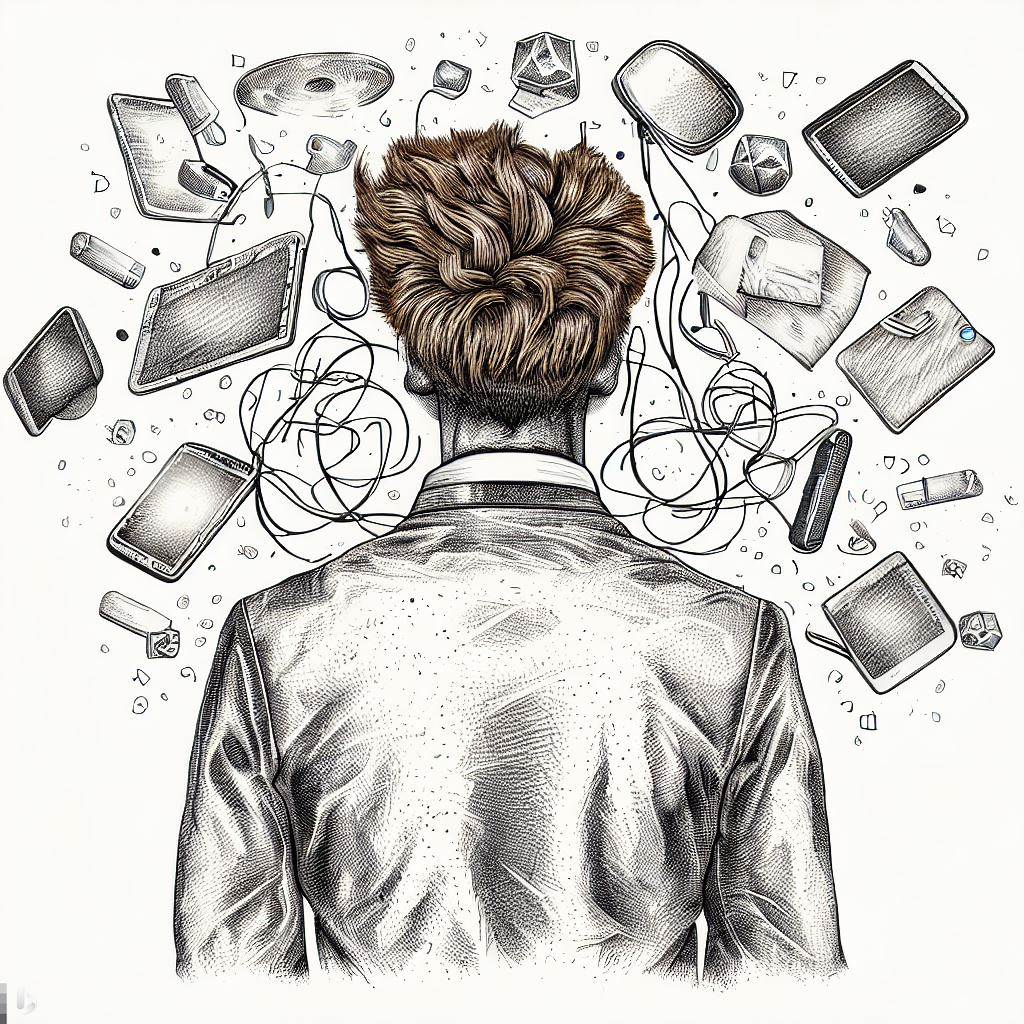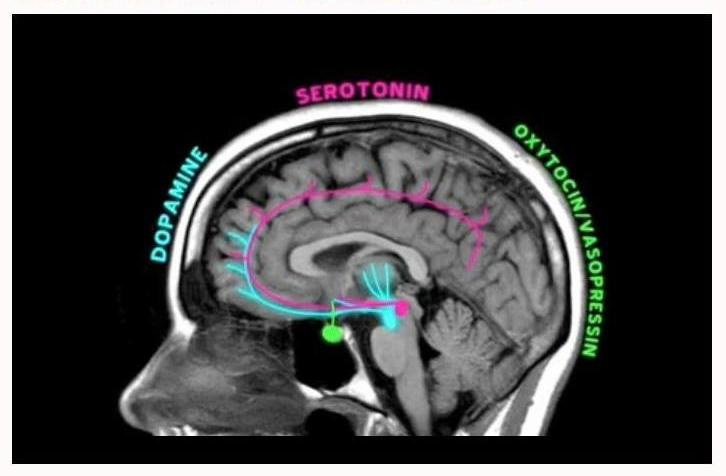What releases dopamine?
When we derive satisfaction and pleasure from something, one of the most important substances our brain produces is ‘dopamine’. It is not the only substance that makes you feel happy, but it is indeed a very important one.
Dopamine is not just an ‘on-off’ switch in our head. We are humans, not machines. The production of dopamine is a complex neurological process that is influenced by multiple factors.
When you eat delicious food or have a good time with friends, dopamine is also released. There are many more activities that you may not have known can trigger the release of dopamine.
Here is a list of 40 activities that give you dopamine:
1. Adventure
When you discover new things or go on vacation to a place you’ve never been before, you become excited. If you are a curious person, you will already know that you become happy from adventurous endeavors. It definitely releases dopamine!

2. Affection
Giving and receiving love is one of the greatest releasers of dopamine. Not only dopamine, but other substances are also produced. You can feel like you’re on cloud nine or as if you can conquer the world. Giving and receiving love can even result in a lower susceptibility to illness, according to a study.
3. Movement
For many people, movement generates a motivated feeling. Engaging in physical activity alone does not trigger dopamine release, especially if you are not particularly fond of sports. However, a tremendous dopamine boost occurs when you have a passion for a sport or game and strive to improve in it. Especially if you regularly exercise and improve, it also makes you happier.
Here are a few activities that can release a lot of dopamine:
These are just a few examples. If you exercise a lot, you will produce dopamine. That is also necessary, otherwise we would sit still all day. Dopamine is a kind of reward for the effort we put in when we exercise. Doing a sport together, like soccer or tennis, produces even more dopamine because it involves communication as well.
Does dopamine alone make us feel happy?
No, dopamine certainly plays a role in the brain’s reward system. Your happiness is a multidimensional construct that extends beyond the influence of a single neurotransmitter. It involves the interplay of various neurotransmitters, psychological and emotional factors. Also your the quality of ones life, and the pursuit of meaning and purpose.
While dopamine can contribute to positive emotions, it is just one piece of the larger happiness puzzle.
To understand these diverse elements can help us cultivate a more profound and sustainable sense of happiness in our lives. So, let’s embrace the complexity of human happiness and explore the multifaceted paths that lead to a fulfilling and joyful existence.
4. Creativity and inspiration
Alot of humans have creative personalities. Not everyone thinks that about themselves, but most people feel happy when they create things themselves. You can express creativity in many different ways. Not only painting and acting are forms of creativity. For example, think about cooking, decorating your room, or choosing clothes in a store.
Here are some of the many creative activities that trigger dopamine;
5. Time with yourself
In this era of devices and distractions, many people are overstimulated. The dopamine that is released without effort leaves us feeling tired and lazy afterwards. The solution is to spend more time, without distractions, with yourself. This allows your brain to rest and produce dopamine in a healthy manner.
So, there are many different ways to treat yourself and find peace. Overcoming personal obstacles also provides a satisfying feeling and boosts self-confidence. Dopamine is released when you indulge yourself, but also when you get to know yourself better and strive for improvement.
6. Motivation and consistency

Getting things done, executing new ideas triggers an explosion of dopamine (and other substances). If you sometimes find it difficult to stay motivated, that’s very normal. It’s about finding a good balance and knowing when to take a break.
It has been shown that focusing for 45 minutes and then taking a short 10-minute break is the most effective. This provides a good balance and helps you get things done faster.
What is unhealthy dopamine release?

This substance is necessary for humans, along with all the other neurological substances that the brain produces. It is meant to reward us after an effort, so that we stay healthy and strong. However, there is a danger. Our technological progress also triggers dopamine. This is easy dopamine. You can generate the happiness hormone without exerting any or little effort.
If you are already feeling down, you are more likely to turn to easy sources that make you feel good. Your phone, a TV series, or a video game. All these forms of entertainment are not necessarily bad, but they can easily get out of control…
Why You Might Not Feel The Effects Of Dopamine
Sometimes there are days when it’s difficult to find satisfaction in what you do. You may feel down or circumstances may prevent anything from making you happy. That’s okay, and dopamine isn’t something you can simply turn on and off. If you’re unsure why you can’t find joy in supposedly “fun” activities, it could be due to a number of causes:
- Neurotransmitter Balance: A Delicate Interplay
Dopamine works in conjunction with other neurotransmitters, such as serotonin and norepinephrine, to regulate our sense of well-being. An imbalance between these neurotransmitters can affect how dopamine functions and is experienced. If you have a serotonin deficiency, it can dampen the effects of dopamine and lead to a general feeling of dissatisfaction.
- Genetic Variations: Unique Biology
You have your own unique genetic composition that can influence how dopamine is produced, released, and metabolized in the brain. It’s possible that you have genetic variations that affect the sensitivity of dopamine receptors, making you less responsive to dopamine stimulation. This can result in a less intense experience of the rewarding effects of dopamine.
- Medication Use: Influence on Dopamine System
It’s also possible that certain medications you take can influence the dopamine system. Some antipsychotics and antidepressants can affect dopamine function, reducing its effects. If you’re taking medication that affects the dopamine system, it may be a reason why you don’t experience the effects of dopamine as strongly. Discussing the potential impact of medication on your dopamine experience with your healthcare provider is advisable.
- Lifestyle Factors: Influence on Dopamine Levels
Your way of living can also impact dopamine levels and the response. A lack of sleep, chronic stress, and a sedentary lifestyle can all have an effect on the dopamine system. Insufficient sleep can disrupt the dopamine system and lead to a diminished reward response. Living a healthy life, including adequate sleep, regular exercise, and stress management, are so important to enhance a dopamine experience.
What releases dopamine in the brain?

It is produced in the brain, in an area called the ventral tegmental area.
In this area, there are neurons that produce and release dopamine in the synapses, the spaces between the neurons. When these neurons are stimulated by certain stimuli, such as food, sex, or drugs, more dopamine is released in the synapses. This creates a feeling of reward, pleasure, and motivation, making us inclined to seek these stimuli again.
The release of dopamine is regulated by multiple factors. This can include genetic predisposition, environmental factors, and our own thoughts and emotions. In some people, there can be a disruption in the dopamine system, which can lead to conditions such as addiction to digital devices.

